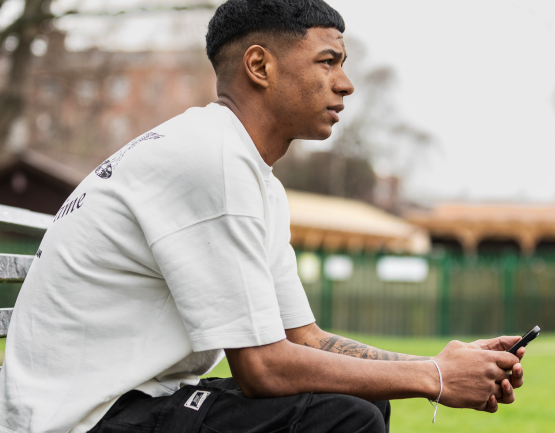What is teen withdrawal?
What is teen withdrawal?
Michelle O'Connor | Reviewed by Dr. Jim Lyng
Understand the natural withdrawal teens experience from parents as they develop independence, and how to support this healthy stage of growing up.

This article discusses teen withdrawal in the context of a teen developing their own sense of self and withdrawing from their parents. This is not about a teen being ‘withdrawn’ or depressed, but about the expected and natural separation that happens between a teenager and their parents or guardians.
Teen withdrawal is a part of their development
As your child grows and develops, they will start to get a sense of their own identity and self. The age this happens depends on the child, and as their parent, you will know their personality and stages, so you should be able to spot a gradual withdrawal.
During this stage of adolescence, a child often starts to change the way they dress, become more irritable towards their parents, and spend more time in their room or with their friends. They might also start to develop and explore cultural viewpoints that are different to yours. This is often true in families who have cultural traditions that are different to your child’s friends. This can be upsetting for you, as you want your child to feel a sense of belonging to your culture.
While you might be frustrated or upset, every young person goes through this, and it’s not a sign there’s anything wrong. And it’s not a sign they don’t love you, they do, they just don’t see themselves as a reflection of you. They want to carve their own path, and this is the start of that journey.
Continue to work on your relationship with your child
While your child is starting to go against your wishes, wants and expectations as a parent, it’s important to maintain your relationship with them. They may fight you and push back against you, but it’s important to listen to them, hear their point of view and accept they need to explore new things.
Retaining this bond is particularly important as your child develops their independence, so they know they can come to you if they need help or support. Make sure you check on them, and ask how they’re getting on with their hobbies and friends. Knowing your child is crucial at this stage in development, as you’ll be able to notice sudden changes or shifts in character.
Teenagers also need clear boundaries, despite what they might say. So make sure they know when they’re expected to be home or spend time with you, for example during dinner or visiting extended family at the weekends. You are still the parent, so while your child may protest and not want to take part in cultural activities or traditions, it’s up to you to decide what is appropriate. Each family is different and will parent differently, as, for example, parents with Nigerian roots will have different expectations to those with Irish roots.
How to spot the signs of ‘unexpected’ withdrawal
It can be tricky for parents to spot if their teen is going through a ‘normal’ period of withdrawal, as their hormones are going wild. They’re often moody and can sometimes look dishevelled, but this is often a phase most teenagers go through as their bodies develop.
If, however, your child shows sudden or extreme changes in their behaviour, it could be a sign of something going on. For example, if they normally spend a lot of time and effort getting ready for school or going out, and suddenly stop, it could mean you need to chat with them. The same can be said if they stop spending time with their friends or doing their hobbies.
Again, it comes back to knowing your child, and taking the time to find out what’s going on in their lives. If you are worried about your child, don’t tell them you’re worried. Use different language and say you’d like to know how they’re doing; be open and non-judgemental.
Speak to your friends and other parents
Some parents can feel a sense of grief when their child starts to withdraw, and this is totally okay. But, it’s important you don’t make your child feel guilty about this stage of their development. They’re not doing it to hurt you; and while you might be hurt they’re ignoring traditions that are important to you, try to understand them.
If you speak to other parents, you will likely find they too are or have gone through this with their children. It can be reassuring to know others have gone through this and made it out the other side. And, while it might seem like something is wrong, don’t underestimate the impact of hormones and how they affect your child. If you do notice an extreme or sudden change in your child, then you could seek professional help. But remember: you probably went through this phase too, and you didn’t think there was anything wrong.

Get support
We can support you in a number of ways:


